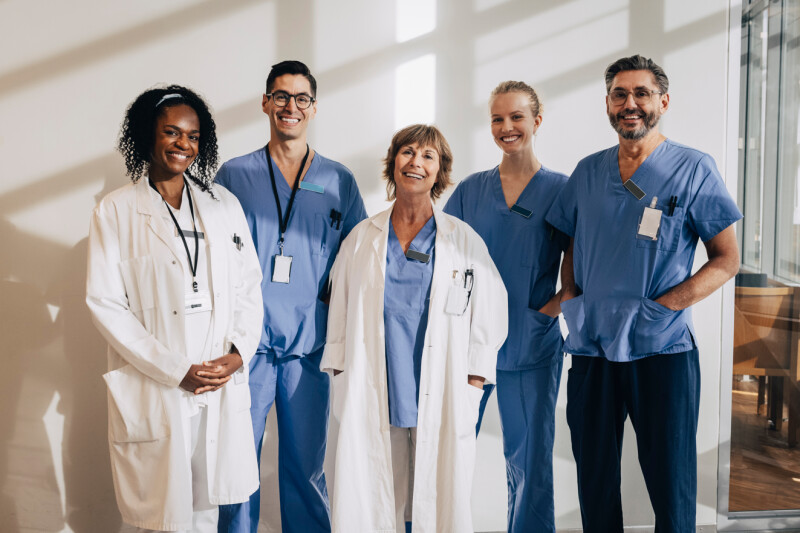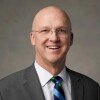My wife and I had a very full life as we raised our five children in southern California. We loved serving in the Church and the community and did our best as a family to live the gospel. My wife and I loved feeling the Spirit in our home and at Church and sharing that with our children.
During this time, however, I felt I needed to increase the influence of the gospel in my work as a physician. This feeling pestered me for years. As an OBGYN, I often saw God’s plan of salvation unfold before me as I assisted mothers as they gave birth to their beloved babies. My gospel perspective enriched my practice and helped me strive to be a better physician, but I still felt that I needed more.
In the early 1990s, I heard about an organization for Latter-day Saint physicians called Collegium Aesculapium. Similar to the J. Reuben Clark Law Society for law professionals, Collegium Aesculapium is an association for Latter-day Saint medical professionals and friends who were dedicated disciples of Jesus Christ. Eager to learn more, I attended one of their meetings which was held just before general conference in Salt Lake City, Utah.
The meeting began on Thursday evening with a devotional and a dinner that my wife and I attended. A general authority spoke, which was an uncommon occurrence for us Californians. I loved sitting among fellow Latter-day Saint physician believers as we carefully listened to what he had to say. That fellowship spoke to me.
The scientific meetings were held the following day. Experts in their fields gave excellent, accessible lectures on general medical and psychological topics. As I learned, I enjoyed the gospel correlations they included in their lectures. A notable aspect of the scientific meeting was that it started and ended with prayer. That blending of the scientific and the spiritual was so different from other medical meetings that I had attended. It helped me recognize how I could more effectively invite gospel influence into my work as a physician.
Since that time, I have attended Collegium meetings as often as I could. The devotionals and scientific meetings and the association with the other members have been terrific. I liked the varied topics in the scientific meetings and how they were presented in a very accessible fashion.

Lectures about mosquito-borne illnesses, emotional resilience, and many other topics were very useful in my practice as well as when I later served in Missionary Health Services (MHS). I never dreamed I would see leprosy, but I did while serving with MHS. I was really impressed when President Eyring taught in a devotional how important it is to listen to the living prophets. He shared an experience when he was serving in the Presiding Bishopric and was able to protect the Church during an economic depression because he listened as the prophet and his counselors talked about the stock market. I had many such experiences at Collegium for which I am grateful.
Now that I have been released as chair of Missionary Health Services for the Church, I serve as Collegium’s president. Because of my experience with Collegium, I want to bring the benefits of this organization to the attention of as many medical professionals as possible.
▶ You may also like: President Nelson shares impactful story of the temporal blessings of the Word of Wisdom
Why Collegium Aesculapium?
Collegium was created in 1983. Its complete name is Collegium Aesculapium: The Association of Latter-day Saint Medical Professionals. The words collegium aesculapium are derived from Latin and mean “colleagues in healing.”
Our membership is made up of medical professionals who provide Western, evidence-based medical care.[1] They include medical and osteopathic physicians, pharmacists, and podiatrists who are committed members of The Church of Jesus Christ of Latter-day Saints and like-minded medical professionals of other faiths. Collegium also includes registered nurse practitioners, physician assistants, and registered nurses who are trained in the same fashion. We are working to extend our reach to medical professionals around the world.
The Collegium’s motto is very instructive: “Emulating the Great Healer: Healers who Teach; Teachers Who Heal.” Its mission statement expands the motto: “As medical professionals, we strive to emulate the attributes of the Savior, the Master Healer and Teacher, as we serve, teach, and minister to others.” Collegium members sustain the First Presidency and the Quorum of the Twelve Apostles and align with revealed doctrines and principles. One of our purposes is to assist members in preparing to serve full-time senior missions with medical and other assignments.

What is the Future of Collegium Aesculapium?
I see our organization growing to help enrich the practice of medicine for medical professionals across the world. Because each of our scientific meetings and devotionals will be broadcast virtually, medical professionals worldwide can participate. Our goal is to increase our active membership by over 200 percent by 2027. Why do we want to grow? Because Collegium can actively support Latter-day Saint medical professionals as they practice medicine and live the gospel.
As our first president, Dr. Robert H. Hales said in 1983:
“Collegium Aesculapium has been organized to meet the expressed needs of [health care professionals] who are members or friends of the Church and who wish to associate and serve with friends and colleagues of high moral and ethical integrity. ... Many [such medical professionals] have an ability to see the whole man in terms of the emotional and spiritual as well as the physical. ... It is through this gospel perspective that they are in a unique position to give support to each other, to promote education, and to serve the Church and the world. They desire to put the teachings of the gospel into their daily lives.”[2]
During my years of private practice in California, I was strengthened by attending Collegium meetings. I loved the learning and the fellowship that Collegium provided. These experiences have helped me increase the influence of the gospel in my work—and they have blessed my life.
I extend a cordial invitation to other medical professionals who are looking to increase the influence of the gospel in their lives and their work to join Collegium. I think you will be pleased, just as I have been.
For more information about Collegium, please see https://www.collegiumaesculapium.org. You may also call 801-802-0449 or email Collegiumaesculapiumfoundation@gmail.com.

▶You may also like: This fascinating pharmacy term will totally change how you think about opposition in all things
Notes
[1] “Patients, as well as doctors and other healthcare professionals, need information they can depend on in these sorts of situations to make the best decisions possible. This is the purpose of evidence-based medicine (EBM): to provide healthcare professionals, patients, and those close to them with up-to-date and scientifically proven information on the various medical options that are available to them. It can help to find out what sorts of advantages or disadvantages a treatment or test has, when people might benefit from it, and whether it might also be harmful.”; National Library of Medicine; Created: June 15, 2016; Last Update: September 8, 2016; https://www.ncbi.nlm.nih.gov/books/NBK279348/
[2] The Journal of the Collegium Aesculapium, 1983


